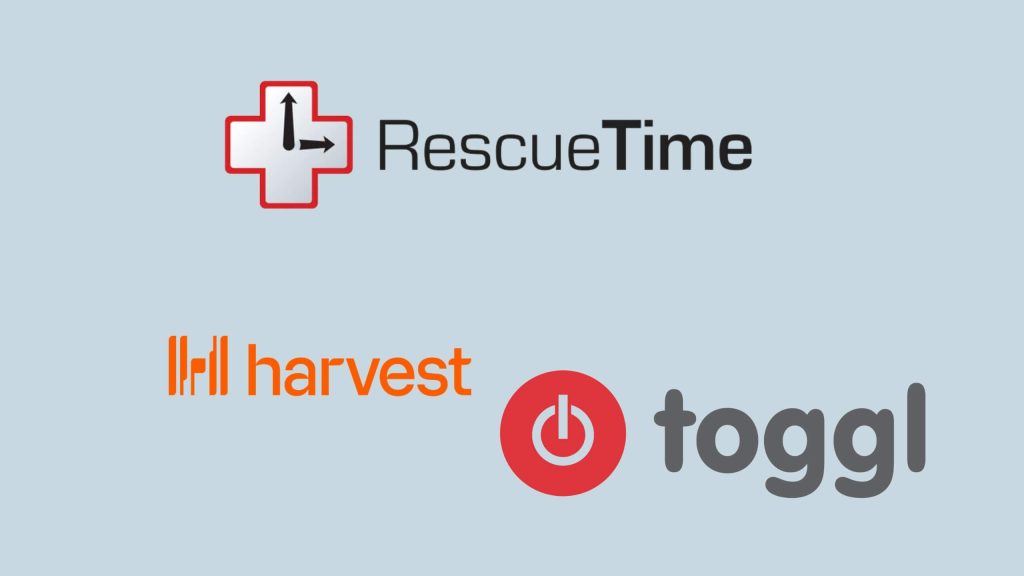Project Management for Small Projects
Project management for small projects involves efficiently planning, organizing, and executing tasks to achieve desired outcomes within a limited scope. With a streamlined approach, small projects can be completed successfully and on time, ensuring optimal utilization of resources and meeting client expectations.
This article explores the fundamental principles and strategies to effectively manage small projects, including setting clear objectives, defining deliverables, establishing a project timeline, assigning responsibilities, and monitoring progress. It also highlights the importance of communication, risk assessment, and continuous improvement in project management for small projects.
By implementing these practices, businesses can enhance project outcomes and maximize efficiency and productivity.
The Importance Of Project Management In Small Projects
The Importance of Project Management in Small Projects
Effective project management is crucial for the success of any project, regardless of its size. However, it becomes even more critical when it comes to managing small projects. Even though the scale may be smaller, small projects can still be complex and have tight deadlines. Small projects can quickly go off track without proper project management, resulting in missed deadlines, wasted resources, and unsatisfactory outcomes.
Benefits of Effective Project Management For Small Projects
1. Improved organization: By implementing effective project management practices, small projects become more organized and structured. This leads to better clarity on objectives, timelines, and responsibilities, helping teams stay focused and aligned.
2. Enhanced communication: Project management practices facilitate clear and open communication among team members, stakeholders, and clients. This ensures that everyone is well-informed about the project’s progress, updates, and potential roadblocks, reducing misunderstandings and enabling prompt actions.
3. Efficient resource allocation: Proper project management helps in identifying the required resources for small projects, whether it’s workforce, materials, or finances. This ensures that resources are allocated efficiently, minimizing wastage and maximizing productivity.
4. Risk mitigation: Small projects are not immune to risks and uncertainties. Effective project management enables teams to identify potential risks, develop contingency plans, and proactively address issues as they arise. This helps minimize the impact of risks on the project’s timeline and deliverables.
challenges Specific To Managing Small Projects
While small projects may seem less complex, they come with their own set of challenges that require effective project management:
Challenges
Solutions
Lack of clear objectives
Define and communicate objectives from the start, ensuring everyone is aligned.
Limited resources
Prioritize tasks, use resources efficiently, and consider outsourcing if necessary.
Team coordination
Establish effective communication channels, delegate responsibilities, and encourage collaboration.
Tight deadlines
Create realistic timelines, break down tasks, and allocate resources accordingly.
How Project Management Can Contribute To The Success Of Small Projects
Implementing project management practices can significantly contribute to the success of small projects:
- Enabling efficient planning and organization
- Facilitating effective communication and collaboration
- Ensuring timely execution and delivery
- Promoting transparency and accountability
- Identifying and addressing risks proactively
- Optimizing resource allocation
By leveraging project management techniques tailored for small projects, teams can overcome the challenges specific to their size and deliver high-quality results within the defined constraints.
Critical Principles For Efficient Project Management
Efficient project management is the backbone of any successful venture, regardless of size. Whether you’re handling a small project or a large one, there are fundamental principles that can help you navigate the complexities and ensure smooth execution. This article will explore the essential steps to achieve effective project management for small projects.
Clear Project Objectives And Scope Definition
A clear understanding of project objectives and scope is paramount to successful project management. By clearly defining what needs to be achieved and the project’s boundaries, you set a solid foundation for all subsequent actions. When all team members are aligned on the project’s purpose and deliverables, it becomes easier to create realistic timelines, allocate resources appropriately, and track progress effectively.
Effective Communication And Collaboration
Effective communication and collaboration are crucial for smooth project management. Creating an open and transparent communication process ensures that all team members are well-informed, share the same vision, and stay on track. Regular team meetings, status updates, and progress reports help foster collaboration and address any obstacles promptly. Leveraging project management tools and techniques like video conferencing, instant messaging, and document-sharing platforms can streamline communication and enhance teamwork, even for remote teams.
Agile Project Management Methodologies For Small Projects
In today’s fast-paced business environment, adopting agile project management methodologies can significantly improve the efficiency of small projects. Agile methods like Scrum or Kanban promote flexibility, adaptability, and continuous improvement. By breaking down the project into smaller, manageable tasks or sprints, you can prioritize work and respond quickly to changing requirements. This iterative approach fosters greater collaboration, enables faster decision-making, and ensures valuable feedback is incorporated throughout the project’s lifecycle.
Risk Management For Small Projects
Risk management is often overlooked in small projects but is equally crucial in larger endeavors. Identifying potential risks early and developing mitigation strategies can prevent costly delays and setbacks. You can prioritize risks, assign responsibilities, and develop contingency plans by conducting a thorough risk assessment. Regular monitoring and evaluation of risks throughout the project’s duration allow for quick adjustments and proactive problem-solving, minimizing the impact of unforeseen events.
Essential Project Management Techniques For Small Projects
Effective project management plays a crucial role in the successful execution of any project, regardless of its size or complexity. However, the need for efficiency, focus, and streamlined processes becomes even more critical when it comes to small projects. This blog post will explore essential project management techniques tailored explicitly for small projects.
Work Breakdown Structure (WBS) For Small Projects
To ensure a smooth workflow and a clear understanding of project tasks and deliverables, creating a work breakdown structure (WBS) is vital. A WBS breaks down the project into smaller, manageable components, making it easier to assign responsibilities, estimate timelines, and track progress.
Here’s an example of a simple WBS for a small website development project:
Task
Description
Deadline
Assigned To
Requirements Gathering
Collecting client’s requirements and specifications
August 1
Jane Doe
Wireframe Design
Creating a visual representation of the website layout
August 5
John Smith
Front-end Development
Building the user interface and implementing the design
September 10
John Smith
Back-end Development
Developing the website’s functionality and database
September 15
Tom Johnson
Testing and Deployment
Testing the website for bugs and issues and deploying it
September 25
Tom Johnson
Setting Realistic Project Timelines And Deadlines
One of the key challenges in project management is setting realistic timelines and deadlines. Unrealistic expectations can lead to unnecessary stress, compromised quality, and missed deadlines. By considering the project’s complexity, the availability of resources, and the team’s expertise, you can establish realistic timelines that allow for unforeseen delays and contingencies.
Here are some tips to set realistic project timelines:
- Break down the project into specific tasks and estimate the time required for each task.
- Consider the availability and workload of team members, taking into account holidays, vacations, and other commitments.
- Factor in potential risks or obstacles that may affect the project’s progress.
- Communicate the timeline clearly to the team and stakeholders to manage expectations.
Resource Allocation And Optimization
Proper resource allocation is crucial for small projects where resources may be limited. You can optimize efficiency and achieve better project outcomes by identifying the necessary resources and assigning them effectively. Consider the following aspects of resource allocation:
- Identify the skills and expertise required for each task and assign the most suitable team members accordingly.
- Consider the availability of resources, such as software, equipment, and materials, and ensure they are procured on time.
- Regularly evaluate resource utilization and adjust to avoid bottlenecks and maximize productivity.
Project Tracking And Monitoring
To ensure the successful completion of a small project, consistent tracking and monitoring are essential. You can stay on track and meet project goals by closely monitoring progress, identifying potential issues, and making necessary adjustments.
Here are some critical practices for effective project tracking and monitoring:
- Regularly update the project’s status and communicate it to the team and stakeholders.
- Use project management software or tools to track tasks, deadlines, and milestones.
- Hold regular checkpoints and meetings to discuss progress, address challenges, and ensure alignment.
- Monitor the project’s budget, making adjustments if necessary to avoid cost overruns.
By implementing these essential project management techniques for small projects, you can enhance efficiency, mitigate risks, and increase the chances of successful project completion. Remember to tailor these techniques to each project’s specific needs and requirements, adapting them as necessary to optimize results.
Tools And Technologies For Small Project Management
When managing small projects, the right tools and technologies can make all the difference. In today’s highly connected and fast-paced business environment, project managers must leverage various software and collaboration tools to effectively coordinate teams, track time, manage documents, and ensure productivity. In this section, we will explore some essential tools and technologies that can streamline the management of small projects.
Project Management Software For Small Projects

Project management software is vital to keep teams organized, improve communication, and enhance project efficiency. With the right software, you can easily create project schedules, assign tasks, track progress, and collaborate with team members.
Some popular project management software options suitable for small projects include:
- Asana: Asana offers a user-friendly interface and robust features like task management, time tracking, and team collaboration.
- Trello: Trello utilizes visual boards and cards, making it easy to manage tasks, track progress, and prioritize work.
- Basecamp: Basecamp provides an all-in-one platform for communication, file sharing, task management, and project tracking.
Collaboration Tools For Remote Teams
With the rise of remote work, collaboration tools have become essential for small project management. These tools facilitate seamless communication and collaboration among team members, regardless of their physical locations.
Some practical collaboration tools for small project teams include:
- Slack: Slack allows real-time messaging, file sharing, and integration with other tools to enhance team communication and collaboration.
- Microsoft Teams: Microsoft Teams provides a platform for chat, video calls, document collaboration, and project management.
- Google Workspace: Google Workspace offers tools such as Gmail, Google Drive, and Google Docs, allowing teams to collaborate in real-time.
Time Tracking And Productivity Tools For Small Project Teams

Tracking time and improving productivity are crucial aspects of small project management. Using dedicated time tracking and productivity tools, project managers can monitor time spent, identify bottlenecks, and optimize team efficiency.
Here are some popular time-tracking and productivity tools:
- Harvest: Harvest offers time tracking, expense tracking, and reporting features to help manage project costs effectively.
- Toggl: Toggl is a simple yet powerful time-tracking tool that integrates with various project management software.
- RescueTime: RescueTime monitors time spent on different apps and websites, providing valuable insights into productivity habits.
Document Management And Version Control For Small Projects
Effective document management and version control are critical for small projects, as they ensure that the team works on the latest files and reduces the risk of errors or confusion due to outdated documents.
Some tools that provide document management and version control capabilities are:
- Google Drive: Google Drive allows teams to store, share, and collaborate on documents, providing version history and real-time editing.
- Microsoft SharePoint: Microsoft SharePoint offers document management, version control, and collaboration features for small teams.
- GitHub: GitHub is a popular platform for version control, especially for software development projects.
By leveraging project management software, collaboration tools, time-tracking solutions, and document management systems, project managers can effectively streamline the management of small projects. These tools empower teams to work efficiently, communicate seamlessly, and deliver successful outcomes.
Best Practices For Successful Project Execution In Small Projects
Project management is a critical aspect of any organization, regardless of size. When it comes to small projects, effective project execution becomes even more crucial. In this post, we will discuss some of the best practices that can help you achieve successful project execution in small projects.
Building An Effective Project Team
One of the critical factors for successful project execution in small projects is building an effective project team. A well-rounded team with the proper skill set and experience is essential to ensure the project’s timely completion and quality deliverables. Here are some tips for building an effective project team:
- Clearly define the roles and responsibilities of each team member to avoid confusion and duplication of efforts.
- Identify team members with complementary skill sets to promote collaboration and achieve optimal project outcomes.
- Encourage open communication and foster a positive team culture to enhance productivity and morale.
Managing Stakeholder Expectations
Managing stakeholder expectations is crucial in any project, regardless of its size. However, effective stakeholder management becomes even more critical in small projects where resources and timelines are relatively limited. Here are some strategies to manage stakeholder expectations:
- Identify and engage stakeholders early in the project to understand their needs, expectations, and concerns.
- Set clear and realistic project objectives and communicate them to stakeholders to align their expectations with project deliverables.
- Regularly update stakeholders on project progress and involve them in decision-making processes to maintain transparency and ensure their buy-in.
Adapting To Changes And Challenges In Small Projects
Small projects often face unexpected changes and challenges that can impact project outcomes. Adapting and responding effectively to these changes is crucial for successful project execution. Here are some strategies to adapt to changes and challenges in small projects:
- Maintain a flexible project plan that allows for adjustments as new information or requirements arise.
- Regularly evaluate project risks and establish contingency plans to minimize potential disruptions.
- Encourage proactive problem-solving and encourage team members to propose innovative solutions to overcome challenges.
Continuous Improvement And Lessons Learned In Small Project Management
Continuous improvement is a vital component of successful project execution in small projects. Reflecting on lessons learned and implementing improvements can enhance future project outcomes. Here are some practices to ensure continuous improvement in small project management:
- Conduct post-project evaluations to identify strengths, weaknesses, and areas for improvement.
- Document lessons learned and share them with the team and stakeholders to promote knowledge sharing and prevent repeating mistakes.
- Implement feedback loops and encourage the team to provide suggestions for process enhancements.
Credit: members.projectcontroltraining.com
Frequently Asked Questions For Project Management For Small Projects
How Do You Effectively Manage Small Projects?
To effectively manage small projects, break them down into smaller tasks, prioritize them, set clear goals and deadlines, and communicate regularly with your team. Use project management tools to track progress and manage resources efficiently. Stay flexible and adaptable to handle unexpected challenges.
What Are The Key Benefits Of Project Management For Small Projects?
The key benefits of project management for small projects include:
- Improved organization and efficiency.
- Better communication and collaboration among team members.
- Increased productivity and accountability.
- Reduced risks of errors and delays.
- Ultimately delivering successful projects within the given constraints.
What Project Management Techniques Are Suitable For Small Projects?
Some project management techniques suitable for small projects include Agile methodologies like Scrum and Kanban, emphasizing flexibility and adaptability. The Waterfall method can be used if the project requirements are well-defined and stable. The Critical Path Method (CPM) helps to identify and prioritize critical tasks, while the Pareto Principle (80/20 rule) ensures focus on the most essential aspects.
Conclusion
To sum up, effective project management is pivotal for the success of small projects. Small businesses can streamline their operations and enhance productivity by adopting efficient strategies, setting clear goals, and utilizing appropriate tools. Remember to prioritize communication, allocate resources wisely, and adapt to unexpected challenges.
Maintaining a proactive and organized approach is key, allowing for flexibility and innovation. Ultimately, implementing project management principles will enable small projects to thrive in today’s competitive landscape.




